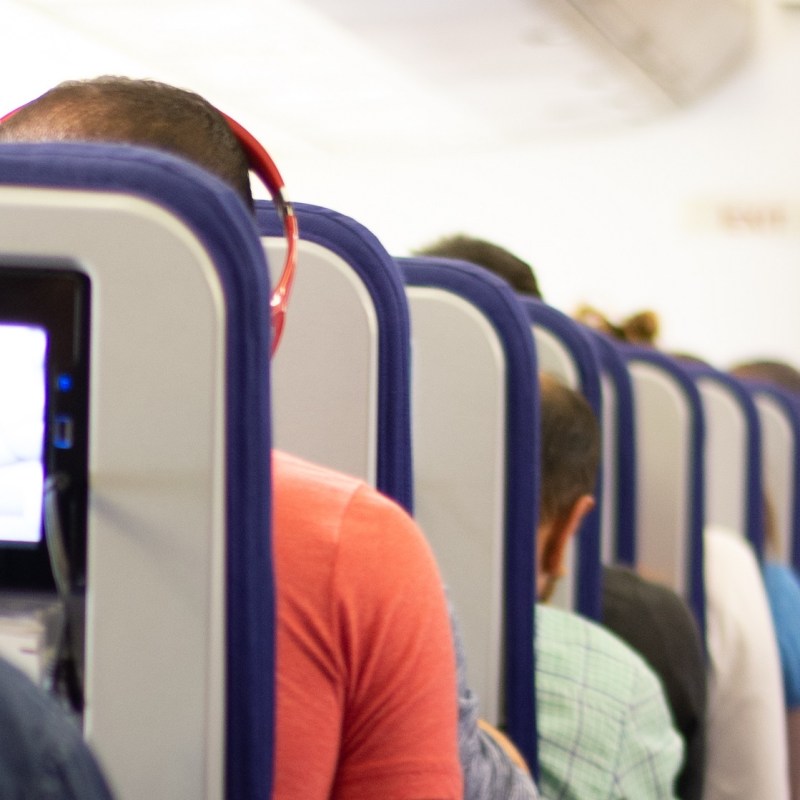
In December of 2018, I retired from practicing medicine. As an anesthesiologist, I spent my days in an operating room putting people to sleep and waking them up when their surgeries were finished. It’s a package deal that I was happy to deliver to several thousand patients over the course of my 26-year career.
I have traveled at every opportunity, including several times this past year. I’m going to share the tips I follow to stay healthy while traveling — tips I used pre-COVID and during the pandemic.
Regarding COVID-19, I’m not going to weigh in on the pros and cons of the COVID vaccines or of wearing a mask — I think you can find enough opinions on both already.
And with respect to any vitamin, supplement, medication, or non-COVID vaccine advice that follows, please use this as a starting point for a discussion with your healthcare provider. This is not meant to be a substitute for a visit with someone who knows you and your medical conditions.
Here are nine tips for staying healthy while traveling.

1. Stay Hydrated
Since your body is about 60 percent water, hydration is a key component to feeling your best. Travel is dehydrating. The air on a plane is at most half as humid as the air in your home (10 to 25 percent on a plane and around 50 percent in your house, depending on where you live).
Then there’s that issue of cutting back on your water intake because you don’t know when or where you’ll use the restroom next. This might be in the back of your mind if you’re on an organized tour and not in control of the comfort stops you make.
So what’s recommended? If you’re traveling by air, try to drink 8 ounces of water an hour. If you drink alcohol, you’ll have to increase the amount of water you drink to make up for alcohol’s dehydrating effects. Try to avoid alcohol during your flight. If you must drink, do so only in moderation.
On the ground, aim for about eight glasses of water a day, but let your thirst guide you.
2. Get Plenty Of Sleep
The importance of sleeping at least 7 hours a night can’t be underestimated, whether you’re at home or traveling. Recent studies link sleep deprivation to obesity, type 2 diabetes, high blood pressure, heart disease, dementia, and early death.
I am awful when it comes to this one. I know I would be better if I stopped drinking caffeine well before bedtime and shut off my phone and laptop earlier, too. Here are some additional habits to adopt for better sleep.
If you’re planning on a long international trip across many time zones, you might want to consider adding an overnight stay in a city where you’ll be catching a connecting flight. Hotels adjoining airports make this fairly easy to do, and often there is little difference in the fare with a prolonged layover.
3. Stretch Your Legs
Long car and plane trips increase your risk of a blood clot in your legs because you’re sitting for prolonged periods of time. This video shows some simple exercises you can do in your seat to prevent clotting.
If possible, stop the car every hour or so to walk. On flights, I opt for an aisle seat so I’m free to walk up and down the aisle when the seat belt sign is off. Consider wearing compression stockings that minimize blood pooling in your legs.
If you’ve had a blood clot before, consult with your physician about the need for blood thinners or medical-grade compression stockings before you travel.
4. Practice Good Hygiene
According to the CDC’s statistics, flu cases in the United States plummeted during the 2020–2021 season. In the midst of the pandemic, not only were we not congregating with each other, but we were practicing our very best hand hygiene and covering our coughs.
Thorough hand washing and using hand sanitizer are the best ways to prevent the spread of infections.
Pro Tip: When you fly, wipe down your seat’s armrests and tray table. According to studies conducted before COVID-19 and the advanced cleaning techniques that resulted from it, the tables were dirtier than the toilet handles.

5. Guard Against Travelers’ Diarrhea
Most bacterial and viral illnesses are spread by inhalation, ingestion, or inoculation (rubbing your eyes). That being said, for travelers to developing countries, food and waterborne illnesses are common, with the incidence of diarrhea between 30 and 60 percent. Usually, diarrhea resolves without treatment in two to seven days.
The CDC’s website provides a common-sense guide to eating and drinking in countries where North Americans might be at risk. To summarize: Eat fully cooked food, wash and peel fresh fruits and vegetables with bottled water, and drink only boiled or bottled water. Avoid ice cubes, and don’t forget to brush your teeth with bottled water, too.
Pepto-Bismol (two tablets four times a day) has some mild antibacterial effects and seems to reduce the chance of getting travelers’ diarrhea. If you are allergic to aspirin, take blood thinners, or have kidney problems or gout, you’ll need to avoid Pepto-Bismol, however.
Should you take prophylactic antibiotics to prevent diarrhea? No. Should you bring antibiotics on a trip to a developing country, just in case? Yes. I recommend bringing antibiotics in case the diarrhea is severe or causes dehydration.
Here are additional recommendations for preventing and treating travelers’ diarrhea.
6. Visit A Travelers’ Clinic Before You Leave
If you’re planning on traveling internationally, a visit to a travelers’ clinic at least a month before your trip can help you get any vaccines or prophylactic antibiotics you will need (for diarrhea or malaria, for example).
If you’ve never been vaccinated against hepatitis A, I recommend that you get the vaccine. Hepatitis A is a virus that affects your liver, and it’s transmitted through contaminated food or water.
Pro Tip: Bring your immunization record to your appointment.

7. Research Doctors And Clinics At Your Destination
The CDC has a guide that covers getting healthcare on your travels. It has a number of resources on evacuation insurance (evacuation — which costs thousands of dollars — may not be included in your travel insurance, and it’s not covered by most health insurance plans), travel health insurance, and finding a doctor or clinic abroad.
Medicare does not cover care outside of the U.S. or its territories under most circumstances. For exceptions, visit their website.
Cruise ships usually have a doctor onboard. The Silk Road train I took did as well. If you are sick, seek medical attention sooner rather than later. It is much easier to treat someone in the early stages of an illness.
If I’m traveling internationally independent of a group, I jot down the names and addresses of accredited clinics with English-speaking physicians before I leave home.
8. Consider Taking Vitamins Or Supplements
It would take an entire book to talk about the pros and cons of each vitamin and supplement. Everything from ashwagandha (a stress hormone-reducing supplement) to zinc is mentioned as something that should be in your suitcase.
Mostly, studies show that vitamins and supplements like Airborne (with vitamins, minerals, and herbal supplements) support your health. With respect to preventing and treating COVID-19, ongoing research is looking at how effective vitamins and supplements are.
A recent study on vitamin D suggests that a deficiency leads to a greater chance of getting COVID-19 and having a worse outcome. Many people in the northern part of the U.S. and in Canada are deficient because of less exposure to the sun.
Pro Tip: I recommend getting a vitamin D level (a blood sample) first to determine whether you need to take supplemental vitamin D. Your healthcare provider can recommend a dose based on your results.
9. Watch What You Eat
When I went to medical school in the 1980s, very little time was devoted to teaching nutrition. But I am convinced that good nutrition promotes your health at home and on the road.
We ought to feed ourselves with the best fruits, vegetables, and protein we can find. Organic is even better for foods labeled the “dirty dozen” — those that are highly contaminated with pesticides and herbicides. A manual for a high-end car will recommend that you fill the tank with premium gas. We ought to fill our tanks with the best food we can afford.
We should limit our intake of refined sugars, highly processed foods, and fast foods that are easy to grab and eat on the go. Because of wonderful things like Cheetos and chocolate and peanut butter ice cream, this is another “do as I say, not as I do” — just like getting enough sleep.
Pro Tip: If you’d like to read more about nutrition, I recommend Why We Get Fat and The Case Against Sugar, both written by Gary Taubes. He’s a lawyer who makes a convincing case against refined sugar.
